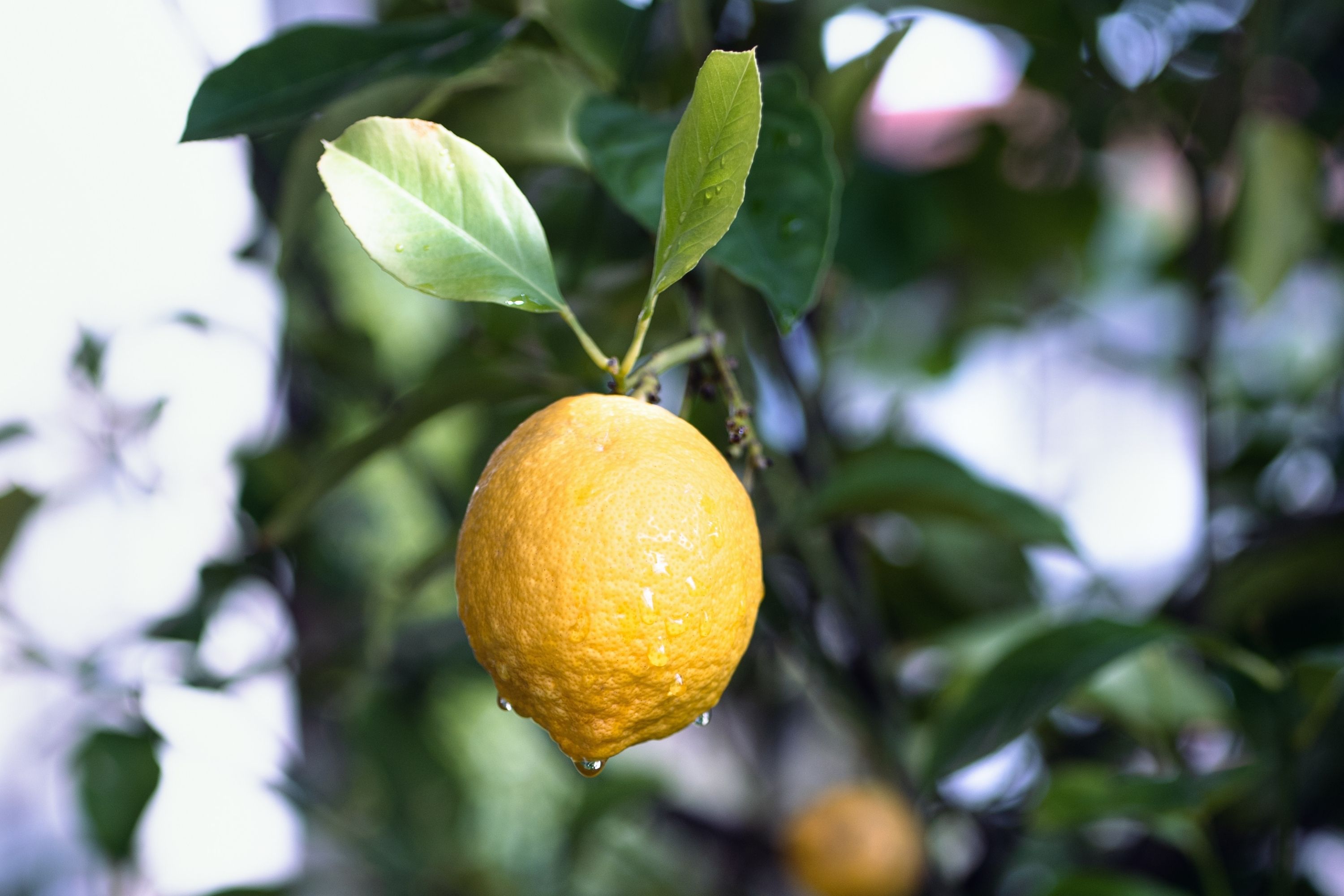Lemon tree
(Citrus limon)

Description
Citrus limon, commonly known as the lemon, is a species of small evergreen tree in the flowering plant family Rutaceae. Lemons are one of the most widely used citrus fruits in the world and are known for their sour taste and strong aroma. The tree is native to Asia, specifically in Northeastern India, but is now widely cultivated in many tropical and subtropical regions around the world. In this article, we will delve into the different aspects of Citrus limon, including its description, cultivation, health benefits, and uses. Description Citrus limon is a small tree or shrub that typically grows up to 3-6 meters (10-20 feet) tall. It has a spreading habit with irregular branches and thorny twigs. The leaves of the lemon tree are ovate, oblong or elliptical, and up to 7.5 cm (3 in) long, with a glossy, dark green appearance. The tree produces white, fragrant flowers that are 2.5 cm (1 in) in diameter and bloom in clusters at the end of the branches. The fruit of the lemon tree is a ellipsoid or oblong shape, with a bright yellow, smooth, and waxy skin. The flesh of the fruit is divided into 8-10 segments, and is acidic, juicy, and has a distinct sour taste. Cultivation Citrus limon is a subtropical tree that requires a warm and sunny climate to thrive. It can be grown in USDA hardiness zones 9-11, where temperatures range from 20-30°C (68-86°F) during the day and 10-15°C (50-59°F) at night. The tree prefers well-drained soils with a pH range of 5.5-6.5, and requires regular watering and fertilization during the growing season. Lemon trees can be propagated from seeds, cuttings, or grafting. However, seed-grown trees are generally not preferred for commercial cultivation, as they take longer to bear fruit and the quality of the fruit can vary. The preferred method for propagation is grafting, where a bud from a desirable lemon tree is grafted onto a rootstock of a different citrus species. The fruit of the lemon tree typically ripens 6-9 months after flowering, and can be harvested throughout the year, depending on the climate. The fruit is harvested when it has reached its full size and has a uniform yellow color. Lemons can be stored at room temperature for up to a week, or refrigerated for up to 3-4 weeks. Health Benefits Lemons are not only a popular culinary ingredient but also have a variety of health benefits. They are a good source of vitamin C, which is essential for the growth and repair of tissues in the body. Lemons are also rich in antioxidants, which help protect the body against damage from free radicals. The phytochemicals in lemons have anti-inflammatory properties and may help lower the risk of chronic diseases such as heart disease, diabetes, and cancer. Drinking lemon water is also believed to aid digestion, promote hydration, and support weight loss. Uses Lemons are used in a variety of culinary applications, from beverages to desserts. They are a popular ingredient in savory dishes, such as marinades, dressings, and sauces. Lemon juice is also commonly used as a natural preservative in foods and drinks, as its acidity helps prevent bacterial growth. In addition to its culinary uses, lemons are also used in various non-food applications. Lemon oil, which is extracted from the peel of the fruit, is used in perfumes, soaps, and other cosmetic products.
Taxonomic tree:







